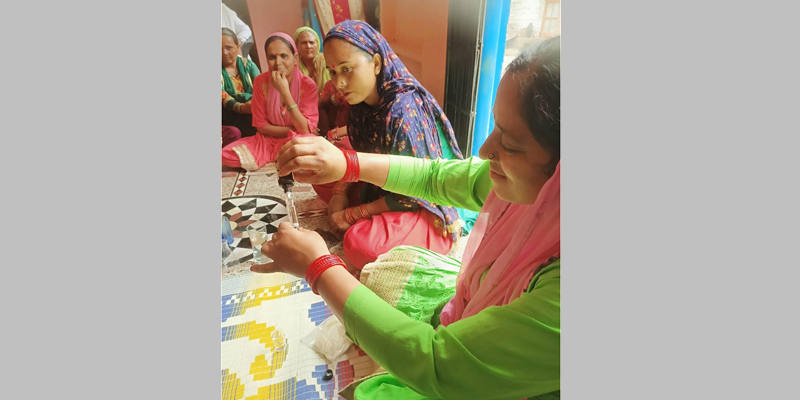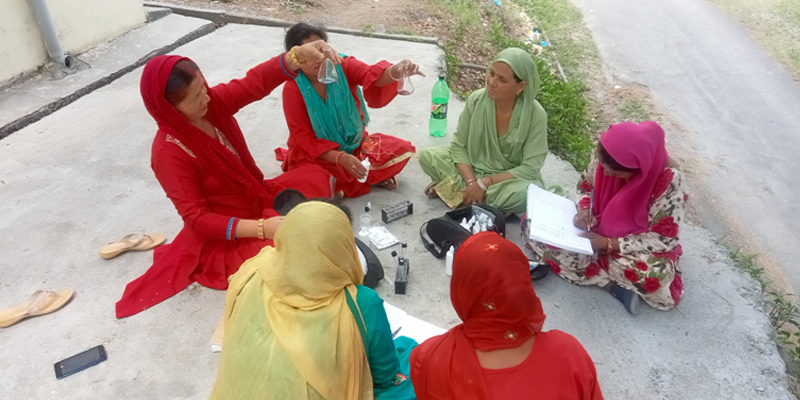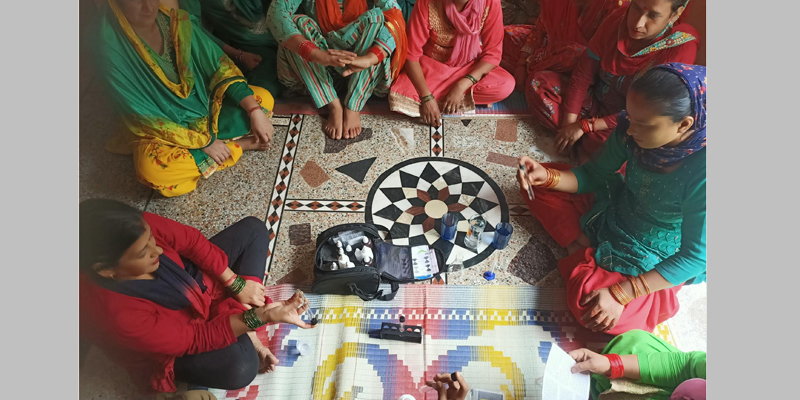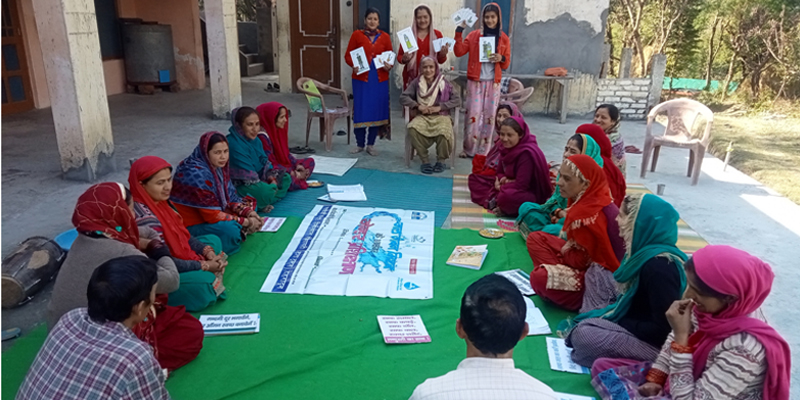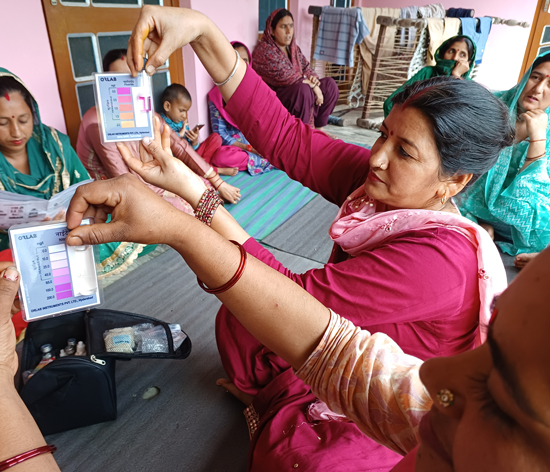
A lack of regular water supply was one of the primary issues plaguing the residents of Mehnat village. Situated in the Sirmaur district of Himachal Pradesh, this small community of 140 villagers relied on an old supply line that could only provide water for up to four days per week, often even less. This meagre supply proved grossly inadequate to meet the daily needs of the villagers and severely hampered their agricultural and animal husbandry activities — their primary sources of income.
Water scarcity would reach its peak during the summer months between April and June, just before the arrival of the monsoons. Adding to their plight was the alarming level of contamination in the water, which posed significant health challenges for the villagers. They frequently fell prey to water-borne diseases such as cholera, diarrhoea, and jaundice, with limited financial means to seek medical assistance.
The importance of water testing
Taking the lead in resolving this crisis were the resilient women of Mehnat, who bore the heaviest burden of the water shortage. They reached out to Himmotthan Society, an associate organisation of the Tata Trusts dedicated to empowering local communities in the Western Himalayan region and improving their quality of life. Facilitated by the Trusts, Himmotthan initiated the Jal Jeevan Mission (JJM) in Mehnat village. JJM is a flagship scheme under the Central Government, and the Tata Trusts are partnering in its mission to provide every household in rural India with access to safe and adequate drinking water through Functional Household Tap Connections (FHTC) by 2024.
The representatives from Himmotthan Society conducted several capacity-building sessions for Mehnat’s Village Water and Sanitation Committee (VWSC) and Water Quality Monitoring and Surveillance Committee (WQMSC). These sessions covered essential topics such as water quality testing, sanitation, hygiene, and the prevention of water-borne diseases. These training sessions also sparked the interest of young schoolgirls in the village, who enthusiastically joined in and participated.
One of the attendees was Tara Devi, who expressed her gratitude for the field testing kits provided to them. She said, “We were not aware how the poor quality of water was affecting our lives and making us sick, but after extensive training sessions by the team from Himmotthan Society, we are now able to test our water against various parameters at our doorstep and check if it is safe to use.”
A future without water woes
Learning how to perform water quality tests has significantly boosted the confidence of the women of Mehnat. These training sessions have not only helped them become more aware of the importance of water conservation and hygiene practices, but also instilled in them a sense of responsibility to share this knowledge with others.
Another participant of the training sessions, Bala Devi, said, “Earlier, we thought that water could only be tested in big laboratories. But thanks to Jal Jeevan Mission, we received a new field testing kit and practical training from Himmotthan Society. Now, we are testing our water every month and teaching this to the community members through the Water Quality Management and Surveillance Committee.”
The implementation of JJM in Mehnat village has proven to be a remarkable success, with every household now equipped with a tap. The water supply scheme too is nearing completion, offering a beacon of hope to a community that has long struggled with water scarcity. Meanwhile, the villagers have united to devise alternative methods that will allow them to continue their agricultural and animal husbandry activities even when water supply is limited. The Jal Jeevan Mission’s ‘Har Ghar Nal Se Jal’ programme has undeniably brought a new ray of hope to these rural women as they eagerly look forward to embracing a better quality of life.
